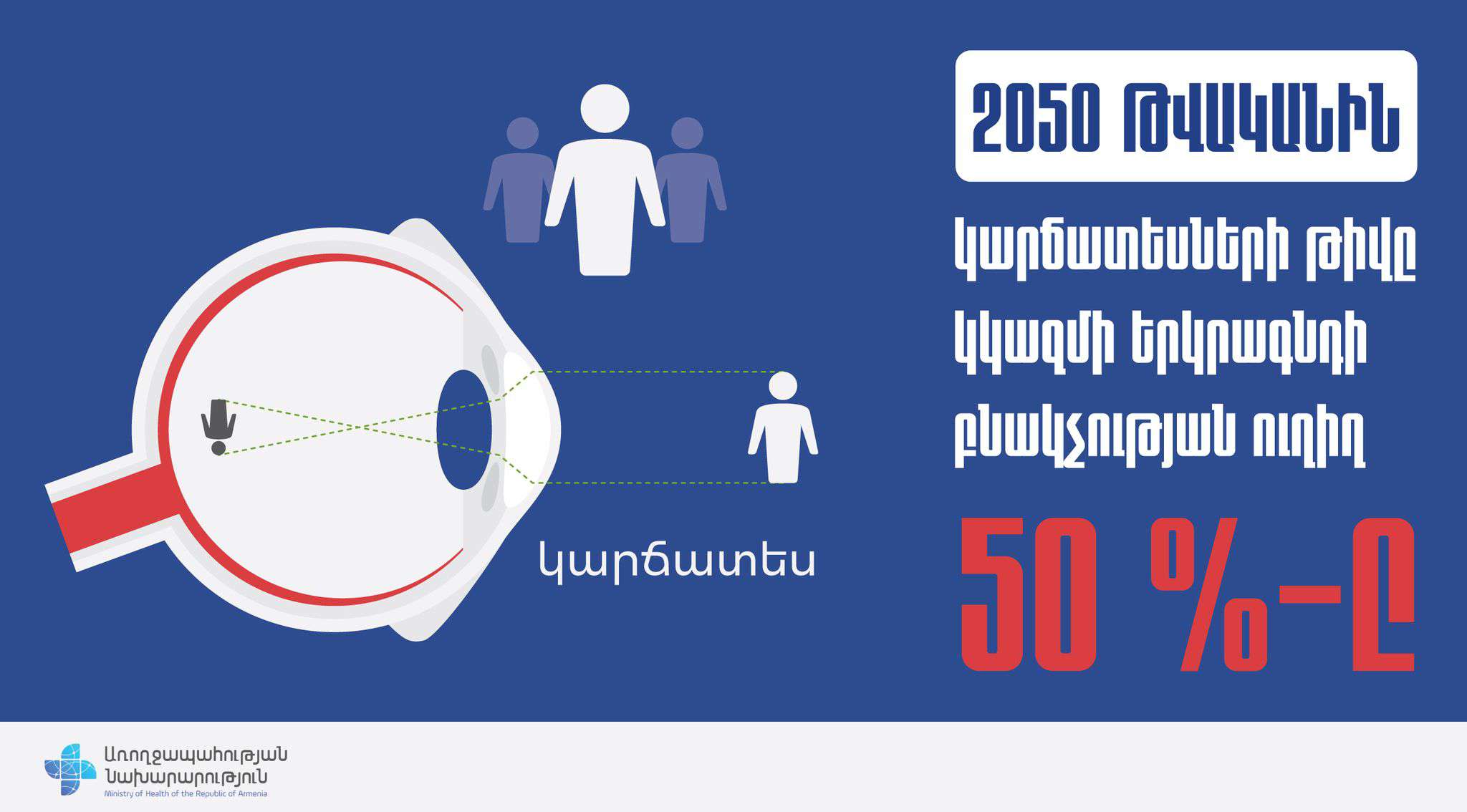Eye diseases and visual impairments are widespread throughout the world. Most of them result from a lack of preventive measures and proper treatment.
According to the data of the World Health Organization, approximately 2.2 billion of the world's population have visual impairments, the causes of which are developing and worsening in modern life:
-
abuse of screen time on gadgets, phones and computers,
-
dry eyes
-
bad habits
-
overtiredness
-
improper diet, etc.
The most common causes of visual impairment are refractive errors of the eye and cataracts. Among the eye diseases leading to irreversible blindness, glaucoma takes the first place, which is usually asymptomatic and is detected in the late stages of the disease.
Retinopathy of prematurity, observed in children born before 34 weeks of age and weighing less than 1500 grams, needs special attention among the diseases that lead to blindness in childhood.
In Armenia, these children are examined in neonatal intensive care units and, if necessary, receive preventive treatment: drugs, surgery, and vitreoretinal operations, for the implementation of which children had to be taken abroad before.
Among the eye diseases among young people, keratoconus is widespread, which leads to reduced vision and irregular astigmatism.




















